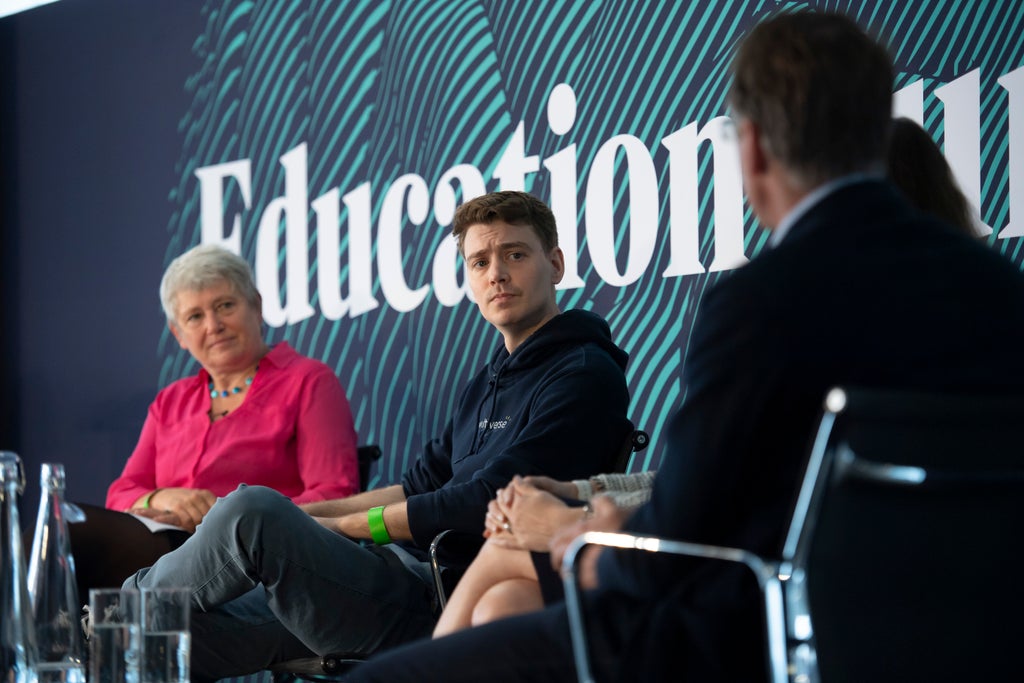
Euan Blair has said that a string of top grades at GCSE makes no difference to the performance of young people who finish apprenticeships through his company, Multiverse.
Tony Blair’s son told a panel on the skills gap at the Times Education Summit that “we’ve had for a long time the obsession with academics as a kind of marker of potential and talent”.
“When we look at the apprentices we close, we’ve actually seen no difference between those who were getting Cs or Grade 4s in GCSEs, and those who are getting A*s and As at GCSE, in terms of the employer they go on to, how long they’re retained in their job, their performance reviews, their progression after that fact,” he said.
The fact that you end up doing mock after mock, and this becomes the end in itself rather than actually learning, is really problematic
He added that despite this, GCSEs are “built up to these big things that basically determine your success or failure later, age 16, which is astonishing”.
Mr Blair created an estimated £160 million fortune through his company, which encourages school leavers to take up apprenticeships instead of going on to higher education.
Asked about his father’s target for 70% of school leavers to attend university, Mr Blair said: “It’s not really a matter of having a fixed target in either direction.”
He said professional apprenticeships are an “incredible” way to begin a career, but “pretty much every teacher went to university and so they’re often more comfortable promoting that route”.
He added that it would not be “a bad idea” to get rid of GCSEs.
“The fact that you end up doing mock after mock, and this becomes the end in itself rather than actually learning, is really problematic.”
There will be kids sitting their Key Stage 2 tests this week, who will have not done any PE and sport for two years because we allow the assessment to dominate that
Geoff Barton, general secretary of the Association of School and College Leaders, said: “We have lost the sense that assessment is something which is a skill set which teachers use routinely… it has become something that is driving far too much.
“There will be kids sitting their Key Stage 2 tests this week, who will have not done any PE and sport for two years because we allow the assessment to dominate that,” he added.
He said GCSEs had been designed for a different era and the qualification had “seen its day”.
The idea of online, adaptive testing, where questions adapt to the pupil’s ability, is “hugely liberating and democratic”, he said.
Ofqual recently announced it will explore the use of online tests over the next three years.
Meanwhile, Kate Bingham, who chaired the UK Government’s Vaccine Taskforce during the pandemic, told the event that first-year undergraduates should be given the opportunity to develop vaccines.
“We’ve got to give them the opportunity to actually figure out how to turn dry science into something practical,” she said.
“And that was what was so exciting about vaccines is it’s actually very tangible – you’ve got a genetic sequence of a pathogen, you can make it whether it’s in protein or MRNA and you can vaccinate an animal.
“You can do that, you can do that at first year of university, and it’s very straightforward.”
She said being able to turn “what you’re learning in basic science” into an “immediate reality” is the best way for pupils to learn.







